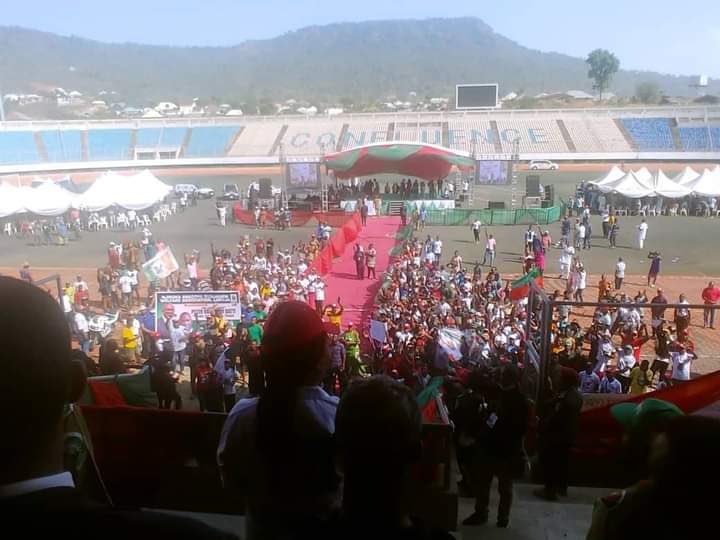The Labour Party has announced the postponement of its rally in Ekiti and Ondo States after an embarrassing turnout in Kogi State strengthened doubts over the party’s preparedness to prosecute the election and mount a serious challenge to the more popular, and better-grounded, two major political parties.
Obi’s party had initially scheduled a rally for the 15th and 16th of the month in the two southwestern states before announcing a postponement via tweet in the later hours of Wednesday.
There are indications that the sudden postponement was a result of the mockery and backlash that trailed the party’s unsuccessful rally in Kogi, a key state in Nigeria’s middle belt where analysts biased toward the Labour Party have exaggerated the party’s chances of pulling an upset.
Crowd turnout at the party’s Kogi rally was abysmally low despite attempts to drive attendance on social media where the party has conducted much of its campaign despite its low adoption in the country, especially at the grassroots which accounts for the most voters.
An analyst reviewing the significance of the event said “it was the definitive proof that the Labour Party will fail to flatter. The party lacks the network, structure, popularity, and experience to not only run an effective campaign but to win a federal election.”
Another said the failure was a stark reminder of the Labour Party’s “institutional knowledge deficit” as it is a “rag-tag assembly of political upstarts and has-beens in search of relevance and an easy path to power.”
Although the party blamed “unavoidable and unusual circumstances beyond control” for its postponement, sources within the party claimed that it became necessary as the party’s state rounds have become “sapped of the initial verve and energy and a sense is building among Nigerians that either the APC or PDP stand a realistic chance of clinching victory and thus better protect their interests in 2023.”
The postponement, according to the source, is a desperate attempt by the party to buy some time and put its house in order – particularly in the face of multiple financial scandals that have shredded its reputation and strengthened suspicion that the ‘Obi movement’ may be little more than an attempt by some people to milk the public for quick cash.

